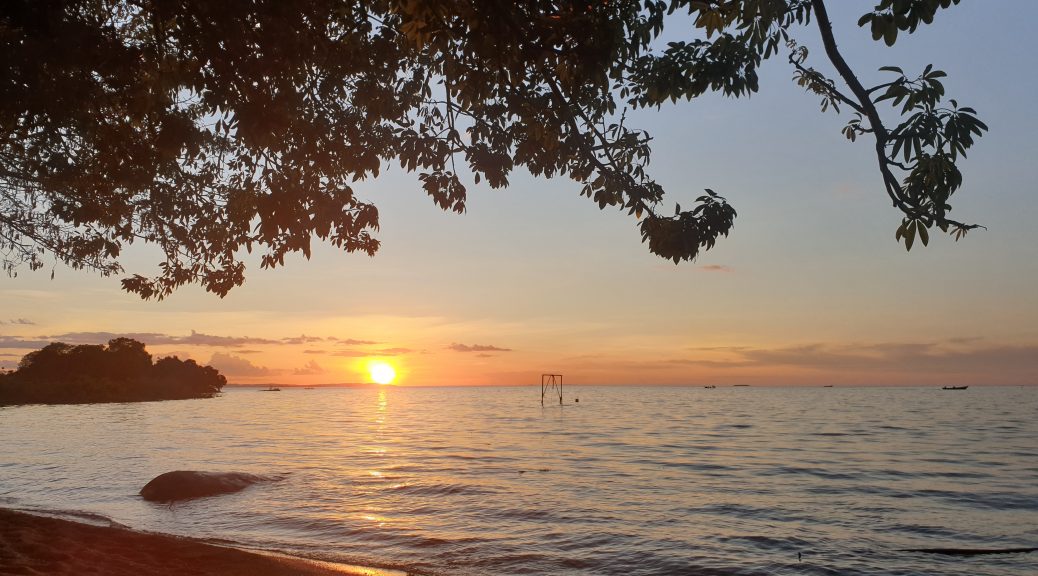
Colona
Het is een dag zoals alle anderen. Het ziekenhuis is druk, de afdelingen liggen vol met zieke mensen. Mijn telefoon gaat om de haverklap af. Ik doe bevallingen, zie zieke mensen op de intensive care, op de NICU, op de interne afdelingen. Zieke kinderen met ongelukken en malaria. Een dag als alle andere. Maar toch is er een groot verschil met een half jaar geleden. Op de compound is het stil. Ik ben de enige witte dokter. Sander, de co-assistent, is weer thuis. Hij is langer gebleven dan al zijn collega’s. Zij moesten van hun universiteit meteen terug toen COVID-19 een Public Health Emergency of International Concern werd. De wereld ging op slot. Vrienden en collega’s vanuit de hele wereld gingen terug naar Nederland, iedereen werd opgedragen waar mogelijk terug te keren naar eigen land. Het was een bizarre ervaring om de e-mails van de Nederlandse ambassade te lezen. Alsof de wereld in oorlog was. Het was onwerkelijk om te zien hoe iedere regering in de wereld zichzelf isoleerde. Eigen land eerst.
Er heerste veel angst. Ook hier in Tanzania. Naast de Nederlandse co-assistenten werden ook de Tanzaniaanse studenten naar huis gestuurd. De compound was leeg, het ziekenhuis raakte steeds leger. Bleven patiënten weg uit angst? Waarschijnlijk. Ik was zelf ook bang. Zou ik nu een toestroom zien van patiënten die het allemaal niet zouden redden? Zou ik kennissen of geliefden in Nederland verliezen zonder de kans te krijgen om afscheid te nemen? Ik heb weken slecht geslapen. Niet vanwege angst, maar vanwege adrenaline. Ik voelde me onoverwinnelijk. Hiervoor was ik opgeleid. Wekenlang werkte ik non-stop, en in de avonduren schoolde ik mezelf bij door online webinars en cursussen te volgen. Een COVID unit werd gerealiseerd, we waren er klaar voor. Ik was er klaar voor. De media-aandacht voor de tropenarts ontplofte zowat. Er werden whatsapp groepen over corona opgericht, ik sprak met mijn vriendinnen in Nederland die op de IC’s werken over hoe ik hier de patiënten kon behandelen.
De epidemie bleek een eenzame strijd. Voor patiënten, voor artsen, voor mensen. Ook ik voelde me alleen. Ik werd verantwoordelijk voor de gehele COVID-19 respons in het ziekenhuis. De dokters waren bang, en dus was ik de enige die bij de patiënten was, samen met 2 verpleegkundigen. Ik had er 6 opgeleid, maar 4 durfden niet meer. Adrenaline maakte plaats voor wanhoop. Maar toen bleef de enorme epidemie in Sengerema uit. Geen ladingen patiënten die lagen te snakken naar adem. Geen lijken op straat. Geen massagraven. Wat in de rest van de wereld, en tot op zekere hoogte in de grote steden van Tanzania wel gebeurde, gebeurde hier niet. Zijn de patiënten hier te gezond? Is er minder overdracht? Gaat het nog komen? Niemand die het weet.
Toch zie ik vooral ook mooie kanten van Corona. Vrienden en familie in Nederland waren thuis en ik sprak ze vaker dan ooit. Iedereen zag elkaar online, en zo wisten ze me vaker te vinden. Ik sprak vrienden van over de hele wereld. Mijn nieuwe lief trok bij me in en we explodeerden van verliefdheid. Nieuwe vriendschappen werden geboren met het blijven van mijn collega Anneloes en mijn co-assistent Sander. We konden nog op pad, en zagen prachtige plekken in Tanzania. Zonder andere toeristen. Dankzij de webinars en online cursussen werd mijn brein weer geprikkeld. Ik herontdekte hoe vriendelijk de Tanzanianen zijn. Mijn liefste collega’s, die allemaal waren uitgevlogen voor hun opleidingen, kwamen tijdelijk terug en het was weer gezellig op de compound.
En toen was corona ‘voorbij’ in Tanzania. Het leven is weer als voorheen. Geen anderhalve meter afstand, geen mondkapjes. Kroegen en scholen zijn weer open. Maar in de rest van de wereld is dat niet het geval. Het is bijzonder om te zien hoe in Nederland nog steeds de angst overheerst, en hier in Tanzania het leven doorgaat. Ja, er is corona, nou en? Er is ook nog steeds HIV, tuberculose, malaria. We leven ermee, zoals we ook met al die andere ziekten leven. Sommige mensen worden ziek, heel ziek, maar dat hoort bij het leven hier. Er zijn al maanden geen officiële cijfers over de besmettingen in Tanzania. Zou het een verschil maken als we het wel zouden weten?
Over een week ben ik niet meer de enige witte dokter in het ziekenhuis. Er komen twee AIOS IGT stage lopen in het ziekenhuis. Ik zie er naar uit, en het ziekenhuis ook.
Voor de interviews met de media over corona klik hier en hier.
It’s a day like any other. The hospital is busy, the wards are full of sick patients. My telephone is ringing every second. I deliver baby’s, I see sick patients in ICU, in NICU, in the wards. Sick children after road traffic accidents and with malaria. A day like any other. Still, there is a big difference with six months ago. The compound is quiet. I am the only white doctor. Sander, the Dutch medical student, is home again. He stayed longer than all his colleagues. They were repatriated when COVID-19 became a Public Health Emergency of International Concern. The world went into lockdown. Friends and colleagues from all over the world went back to the Netherlands. Everybody was summoned to return to their own countries. It was a bizarre experience to read the emails from the Dutch embassy. Like the world was at war. It was surreal to see all governments going into self-isolation. Own country first.
There was a lot of fear, also here in Tanzania. Together with the Dutch students the Tanzanian students were sent home. The compound was empty, the hospital became emptier. Did patients stay away out of fear to contract the virus? Probably. I was also scared. Would we see a massive influx of patients who all wouldn’t make it? Would I lose friends or loved ones without being able to say goodbye? I had insomnia for weeks. Not because of fear, but because of the adrenaline. I felt invincible. This was what I was trained to do. For weeks I worked non-stop and in the evenings I educated myself by watching online courses and webinars. We opened up a COVID unit, we were ready. I was ready. The media attention for global health doctors exploded. There were whatsapp groups on corona, and I with my friends who were working in Dutch ICU’s on how we could treat the patients here in Sengerema.
The epidemic turned out to be a lonely battle. For patients, for doctors, for people. I too felt alone. I became responsible for the COVID-19 response in the hospital. Doctors were scared, and so I was alone with the patients, together with 2 out of the 6 trained nurses. The other 4 were too afraid. Despair took the place of the adrenaline. But then the epidemic did not come. No massive influx of patients gasping for air. No dead bodies on the streets. No mass burials. What happened in the rest of the world, and to a certain extent in the big cities in Tanzania, did not happen here. Are our patients too healthy? Is there less transmission? Is it still coming? Nobody knows.
Still, I see the beautiful sides of corona. Friends and family were at home and I talked to them more than ever. Everybody found each other online, and so they found me more often. I talked to my friends from all over the world. My new love moved in and our love for each other exploded. New friendships blossomed with my colleague Anneloes, who also stayed, and my student Sander. We were still able to travel, and so we saw beautiful places in Tanzania. Without other tourists being around. Thanks to the online courses and webinars my brain was stimulated again. I rediscovered the friendliness of the Tanzanian people. My dearest colleagues, who all went away for specialization, came back temporarily. There was life on the compound again.
And then Corona was “over” in Tanzania. Life is as before. No 3 feet distance, no facemasks. Bars and schools have reopened. But not in the rest of the world. It’s strange to see how fear still exists in the Netherlands, and life in Tanzania continues as normal. Yes, there is Corona, so what? There still is HIV, tuberculosis, malaria. We live with it, like we live with the other diseases. Some people get sick, very sick, but it’s part of life here. There haven’t been any official numbers on corona infections for months. Would it make a difference if we knew?
In a week time I am not the only white doctor in the hospital anymore. Two Global Health residents are coming for a 6 month rotation. I’m looking forward to it, as does the hospital.
For interviews with the media click here and here.
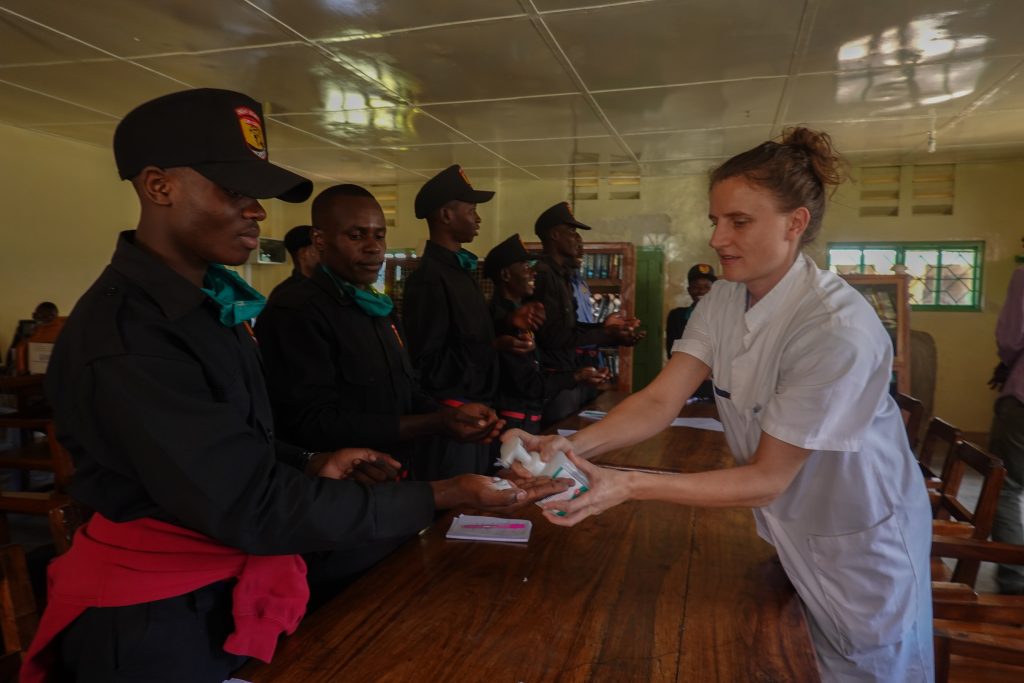
teaching hand sanitation 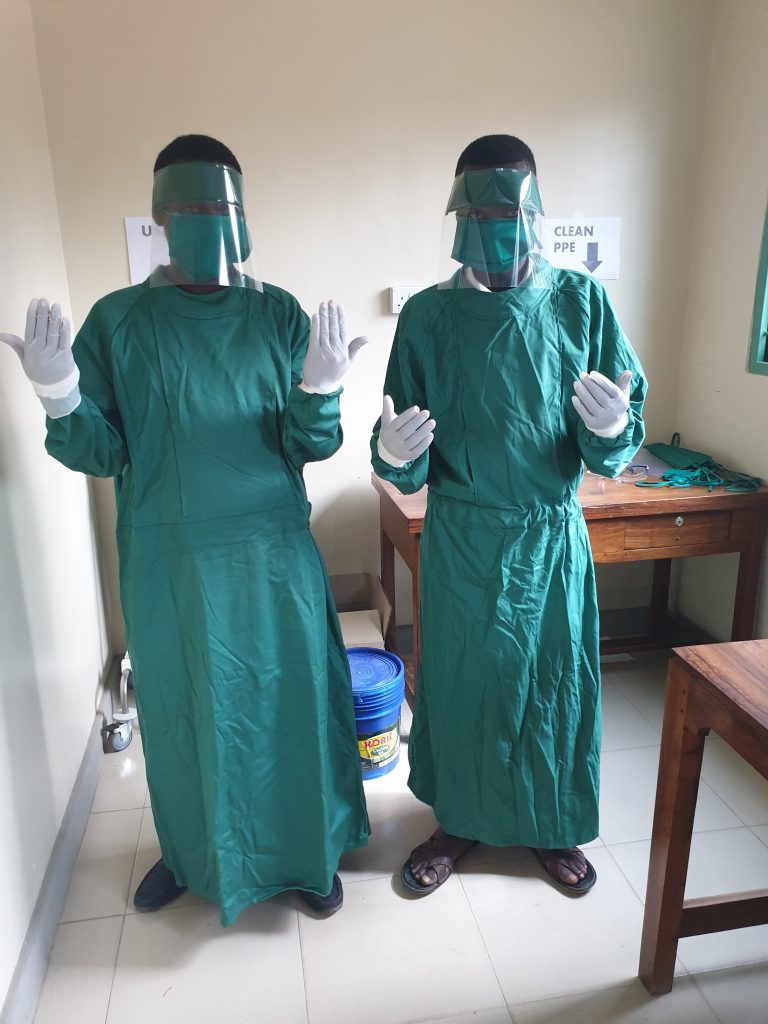
COVID protection 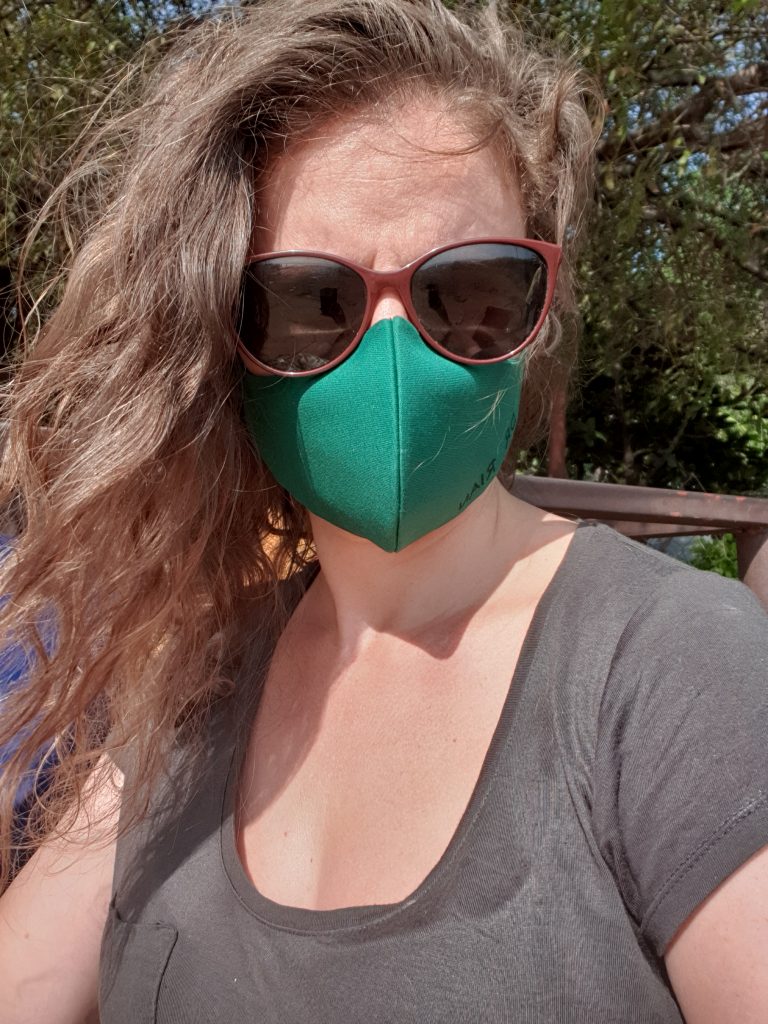
face mask 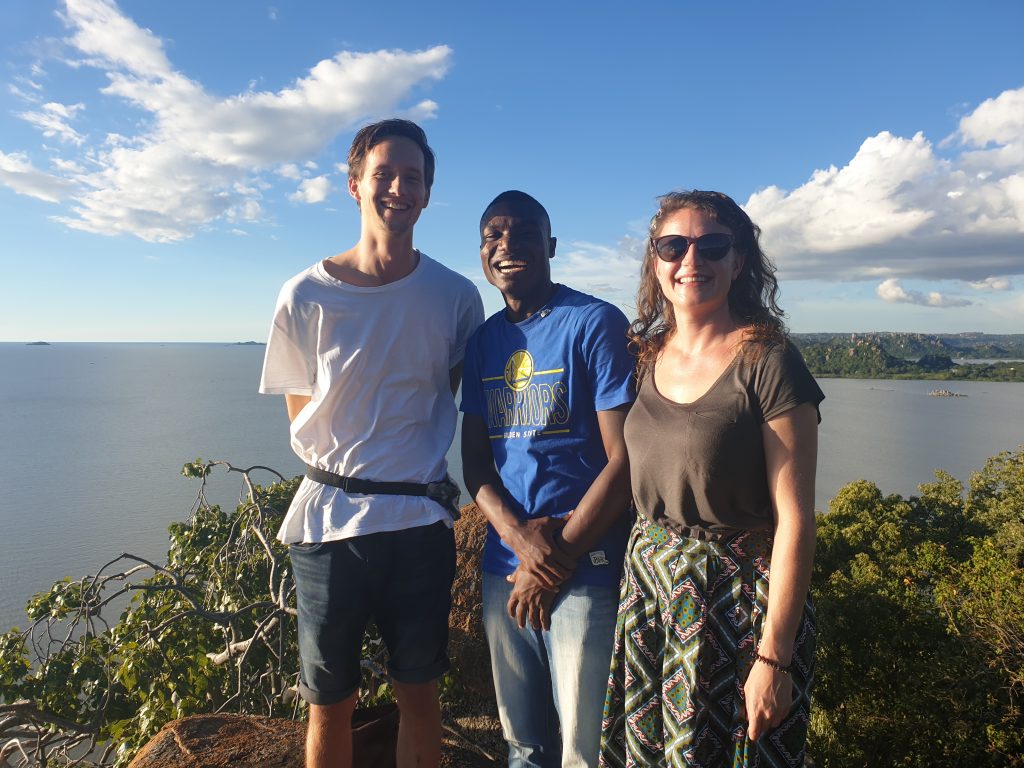
Wag Hill lodge 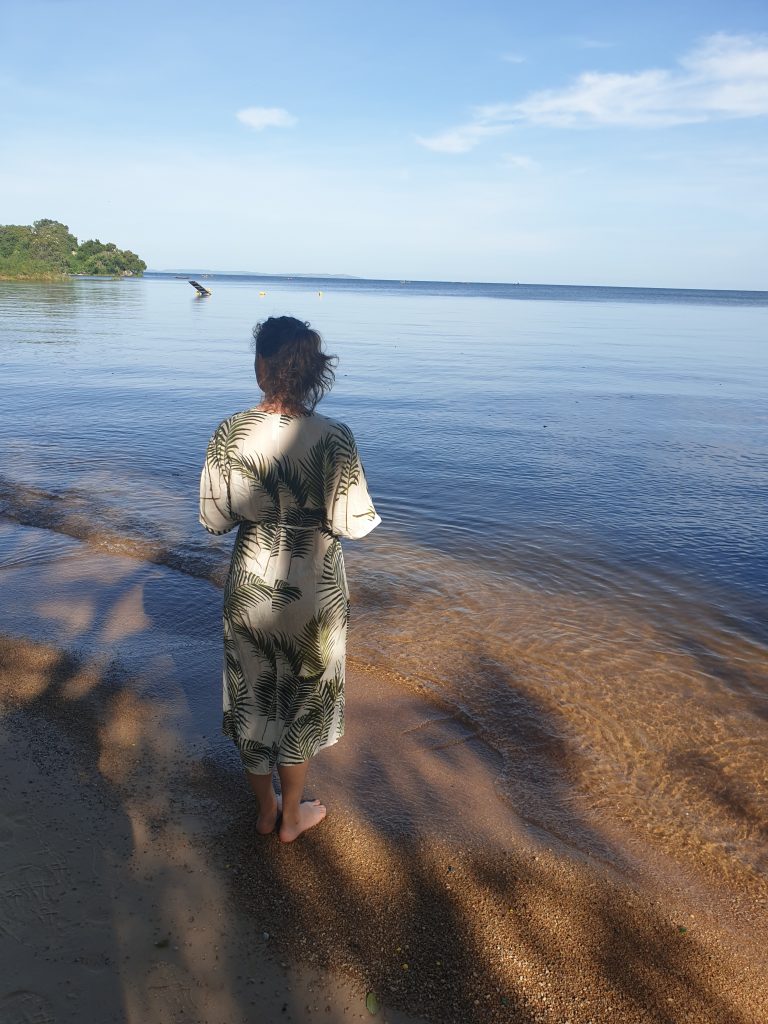
at the lake 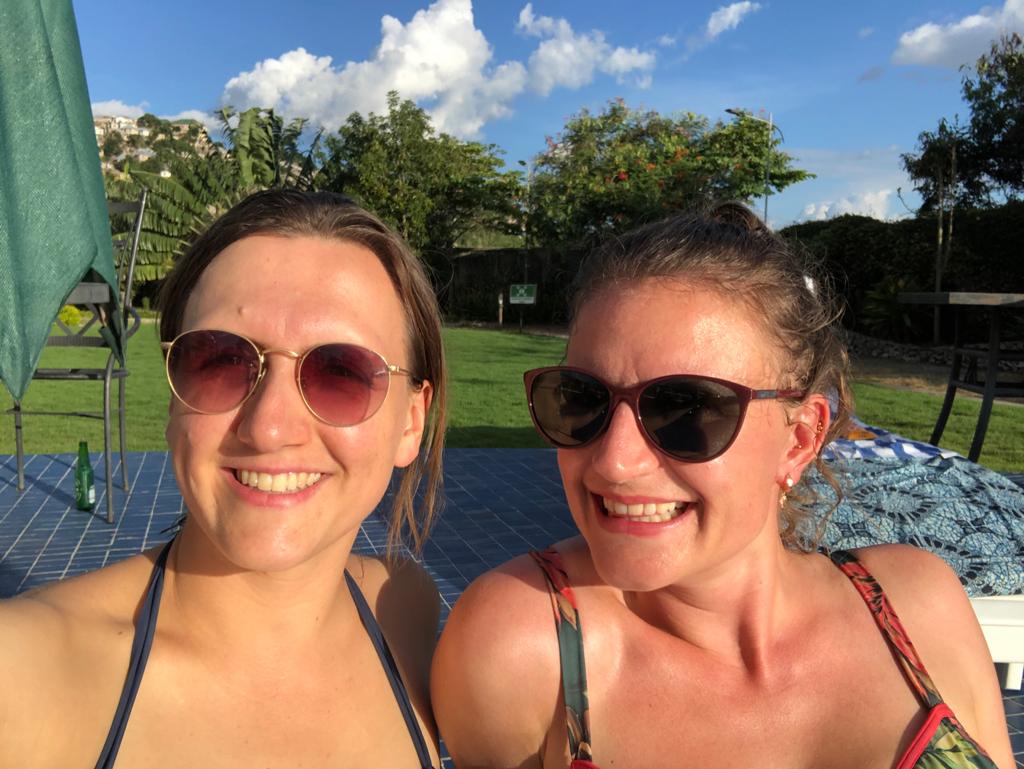
Anneloes 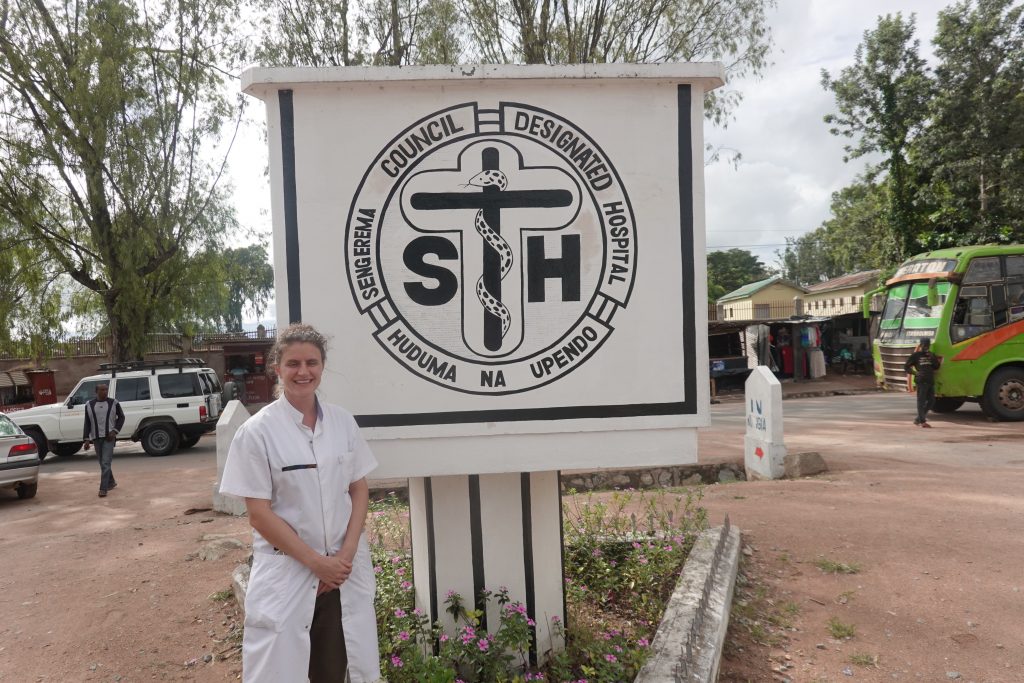
at the hospital 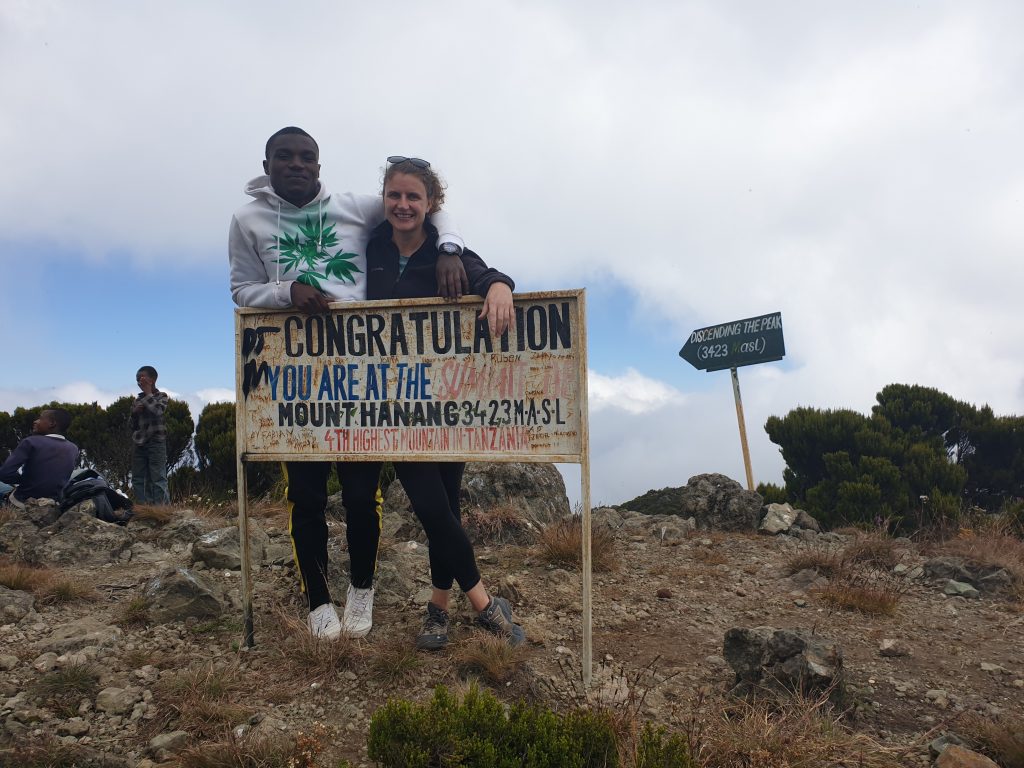
on top of mt hanang